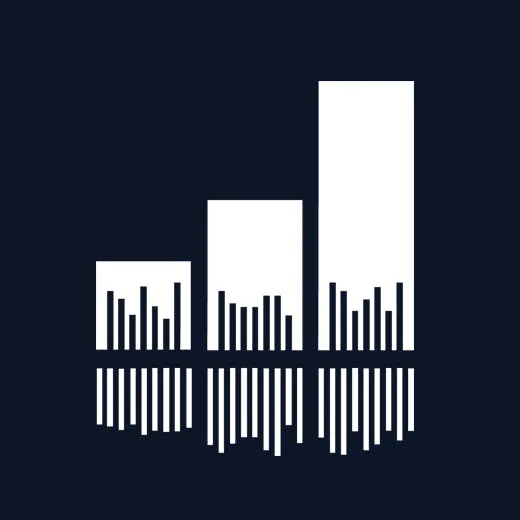Surely, product (or service) quality is king. But that doesn’t mean that companies shouldn’t invest in building their brand — especially when it comes to the more developed markets of the world. However, building your brand involves more than just slapping on a logo or a catchy tagline. It is the practice of crafting who you are as a company for your stakeholders — which is why it can be felt in everything from the way you run your social media to your website design and the partnerships you get into.
In the industry that is built on collaboration, one of the most powerful ways to establish your brand is by taking part in the industry events. Music conventions and industry conferences have the power to legitimize brands and help them create an image of industry insiders. In this article, we’ll cover how conventions, trade shows, and music showcases have built some of the music giants today — and how you can take advantage of the music business events.
3 types of music industry events and conferences
Trade shows
Trade shows are events that bring together members of a particular industry to present and showcase the latest products and services. Because trade shows are, for the most part, geared towards members of a specific industry, these events are typically closed off to the general public. The most prominent example would be The National Association of Music Merchants (NAMM) trade show, a stage where all of the music industry heavyweights launch their latest projects.
Conventions and Conferences
Conventions, on the other hand, are generally open for industry members and enthusiasts alike. Most of them will only charge an entrance fee for access to events and panels, tailored both to the general public and music professionals. Music conferences and conventions are the places where the music industry can meet and discuss the challenges it faces. An example would be Music Biz 2019, aimed to bring together the different sectors of the music industry — content, commerce, and creative — under one roof to discuss the future of the music business.
Music Showcases
Music showcases are in between the traditional music festivals and business events mentioned above. Built around the idea of showcasing (duh) fresh music talent and trends to the industry, music showcases help up-and-coming artists to link up and connect with talent buyers — from booking agents and live promoters to label A&Rs. Besides, music showcases also tend to draw in music enthusiast crowds and provide up-and-coming talent access to a broader audience. In that sense, they offer artists exposure. Showcases are often paired up with conferences, panels, and conventions. SXSW Conference and Festival, MaMa Festival and Convention, Sonar — all of those events merge music festivals and business events into a single Showcase experience.
Why is NAMM the biggest of them all?
The National Association of Music Merchants is a trade show catering to both international and local music distributors. First launched in 1901, the NAMM trade show held every January at the Anaheim Convention Center in California. Moreover, the Summer NAMM, a smaller side-show, is held each July in Nashville, Tennessee.
Over the years, NAMM has managed to gather all the movers and shakers of the music industry under one roof. While trade shows are generally known as industry events tailored for retailers and distributors, NAMM has built a reputation of the place where the latest and most significant technical innovations in music are presented to the world.
A lot of innovations that have changed the landscape of the music industry can be traced back to the NAMM show. In fact, the first MIDI (Musical Instrument Digital Interface) standard was introduced at the 1983 Los Angeles NAMM show. Back in the day, MIDI was as innovative as it gets, launching a monumental shift in the music industry. Ultimately, MIDI has forever changed how music is made, allowing musicians all over the world to create full-blown tracks without ever leaving their bedroom.
Things have since gone full-circle as the newest iteration of the MIDI was recently announced at NAMM 2019. Just like its predecessor, MIDI 2.0 will undoubtedly have a long-lasting (though much more subtle) effect on the sound and production of music. Through the years, innovations such as these have graced the NAMM shows, defining the state of music as we know it today.
Who goes to NAMM?
Now, given that trade shows are mostly industry-only events, the only people you’d meet at NAMM trade shows are owners, suppliers, employees, and artists sponsored by NAMM member companies. Here’s a quick breakdown of who you can expect to see at the NAMM trade shows:
Hardware makers
Hardware makers, both boutique and commercial, are mainstays at NAMM. It’s the main stage where they introduce their newest product to the industry. Throughout the years, NAMM has built a “roaster” of music gear innovators, associated with the brand. One example is the veteran sound designer and Strymon Co-Founder Pete Celi, who debuted the much-awaited Strymon Volante in the most recent Summer NAMM last July.
Then, in the course of the Winter NAMM show in January 2019, Fender released six pedals, adding to an already impressive roster of pedals and guitars. The brand has been a staple in the industry ever since it opened up shop back in 1946, and the fact that Fender keeps on launching their products under the NAMM’s roof goes to show the real caliber of the event.
Touring and Live Professionals
Having the best equipment is essential for those who make a living off of live performances and shows. Live music professionals of all calibers make the yearly trip to NAMM to shop for the touring equipment, invest in their craft, build up personal networks, and find potential partners.
Studio Sound Engineers
Besides being the top trade-show in the music world, NAMM also hosts the Technical Excellence and Creativity (TEC) Awards, honoring the best and brightest in the audio and sound production industry. Sound engineers are the key audience for the hardware manufacturers, and given the plethora of new audio-tech presented at NAMM, studio professionals from all over make it to the yearly event.
A&Rs
Artists and Repertoire reps, or simply A&Rs, are the people whose job is to scout for new upcoming talent and contribute to the commercial development of talent they already represent. A&R professionals may choose to attend on behalf of the artists looking for a potential sponsorship deal with hardware makers. Besides, it’s also the A&R’s job to build a team of recording professionals around the artist, putting the talent in touch with the best sound engineers, producers, and other studio professionals — all of which frequent the NAMM trade shows.
General Attendees
While the trade show is exclusive to NAMM members, the general populace (or, at least, the part of it with an eye for music innovation) may apply for a general attendee badge to get in on the upcoming NAMM shows. However, this offer is still limited to audio professionals, potential buyers from non-member companies, and music educators — so you will rarely meet non-music people at NAMM.
How Trade Shows Like NAMM Help Artists
While NAMM may come off as a tech-oriented event, it also provides a significant benefit to artists, providing them with networking opportunities and access to the latest equipment. Besides, NAMM has recently taken a great interest in promoting and developing music talent across the world.
Exposure
The NAMM Winter show held in Anaheim, California, at the Anaheim Convention Center provides a space for artists who want to perform at the trade show. Artists interested in performing at The NAMM Show can apply online, and if accepted, will be playing across five different stages located at the Grand Plaza, Marriott, Hilton, and Sheraton hotels, and the Arena Plaza. With over 100,000 music professionals and enthusiasts attending the show every year, including Hollywood bigwigs, that’s definitely a crowd worth getting in front of.
Innovation & Inspiration
While gear isn’t everything, trade shows like NAMM encourage companies to continuously improve their products and services. Through these innovations, artists have an opportunity to maximize their skill sets and reach new creative heights.
Innovations lead to shifts in sound across the music industry, but even more importantly, they allow for creative experimentation. Music performance and recording novelties are only as good as the creative uses artists find for them. Keeping your finger on the pulse of the latest tech can give you the incentive to continually go out of the safe zone and develop your sound.
Best Music Trade Shows
The NAMM show is without a doubt a heavyweight of the music industry — but it's not the only event you can leverage to get your brand out there and build up a status of the established music partner. Below, we've gathered a list of some of the best music industry events, conferences, trade shows and showcases you should definitely know about.
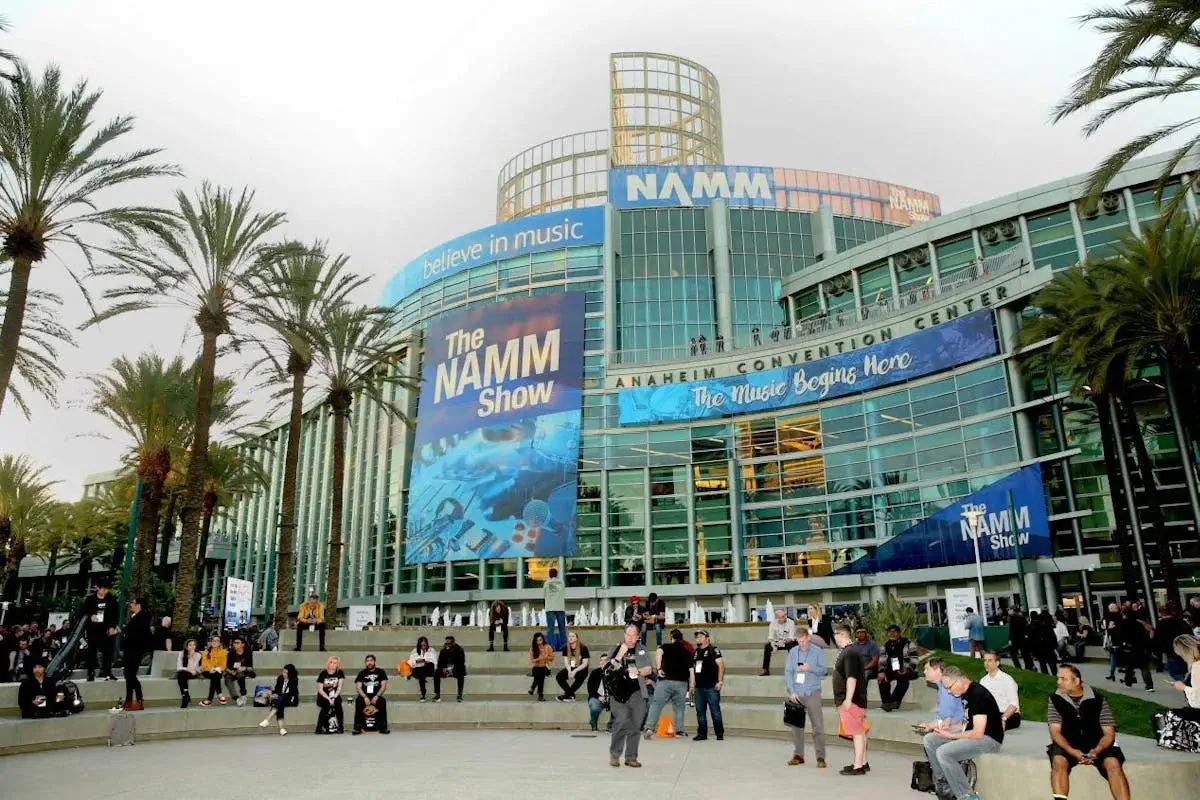
Credit: NAMM.org
The NAMM Show
The NAMM Show is one of the largest music trade shows in the world, drawing in thousands of people annually. With its expansion into a summer event, as mentioned above, NAMM takes the best and most innovative products and services from industry giants and niche boutiques alike. On top of this, the event also plays host to the She Rocks Awards, recognizing the most accomplished women in the industry — from musicians and stage performers to behind-the-scenes professionals.
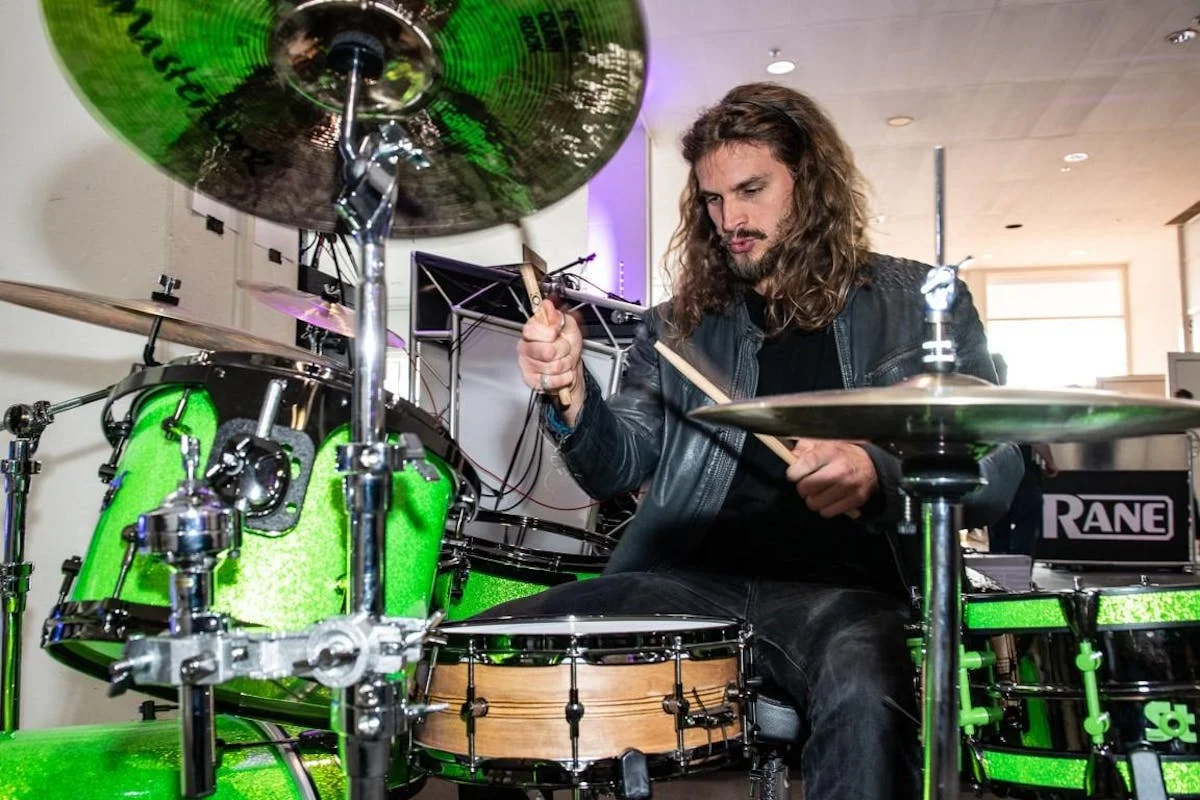
Credit: Musikmesse
Musikmesse
Held in Frankfurt, Germany, Musikmesse is the single largest international music trade fair in Europe. Set to celebrate its 40th year in 2020, Musikmesse is an event that touches on instruments, sheet music, music production, and music marketing.
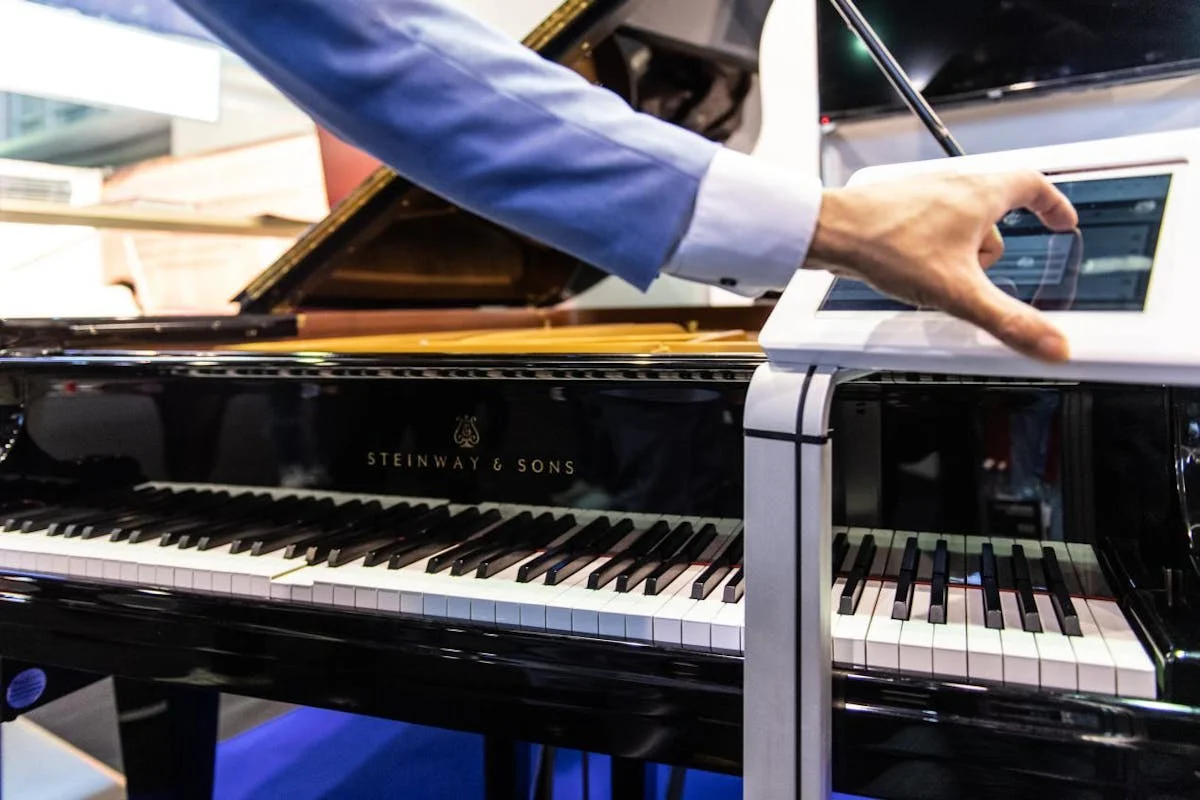
Credit: Music China
Music China
The newest of the bunch is Music China, which boasts an attendance of over 110,000 visitors from over 81 countries. This makes it the premier music trade show in the Asian region — the fastest-growing destination in the music business today.
Best Music Industry Events and Conferences To Learn More About The Business
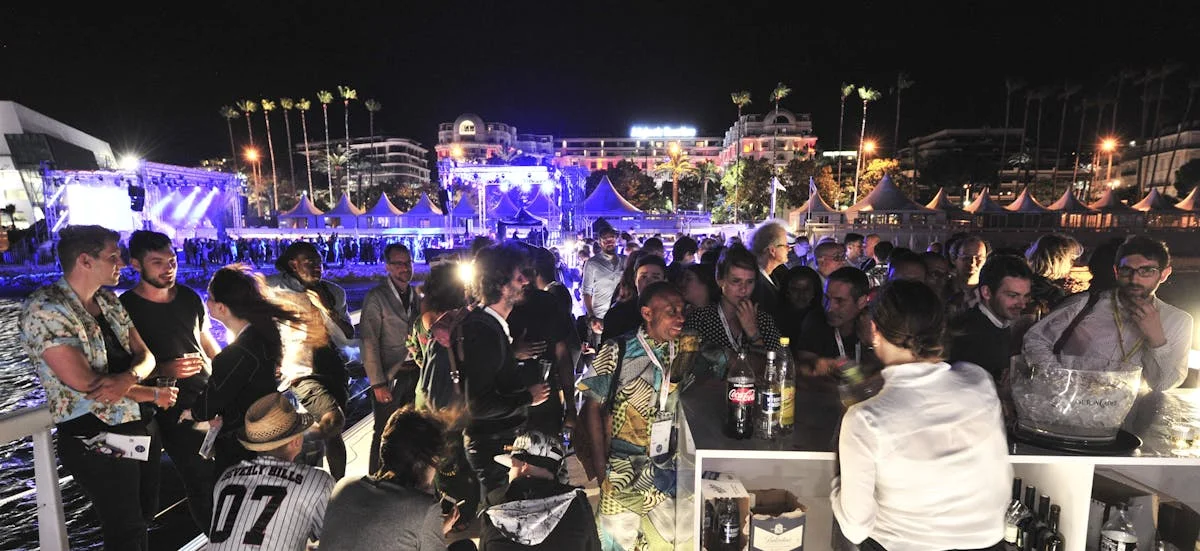
Credit: Midem
Midem
Launched in 1967, Midem brings together the key players of the music ecosystem. The Midem is currently held in May in the “Palais des Festivals de Cannes” (the place where the infamous creativity and movie festivals are hosted). Every year, Midem gathers more than 5000 attendees from 90 countries for 4 days of conference, networking events and live shows held on the Midem Beach Area.
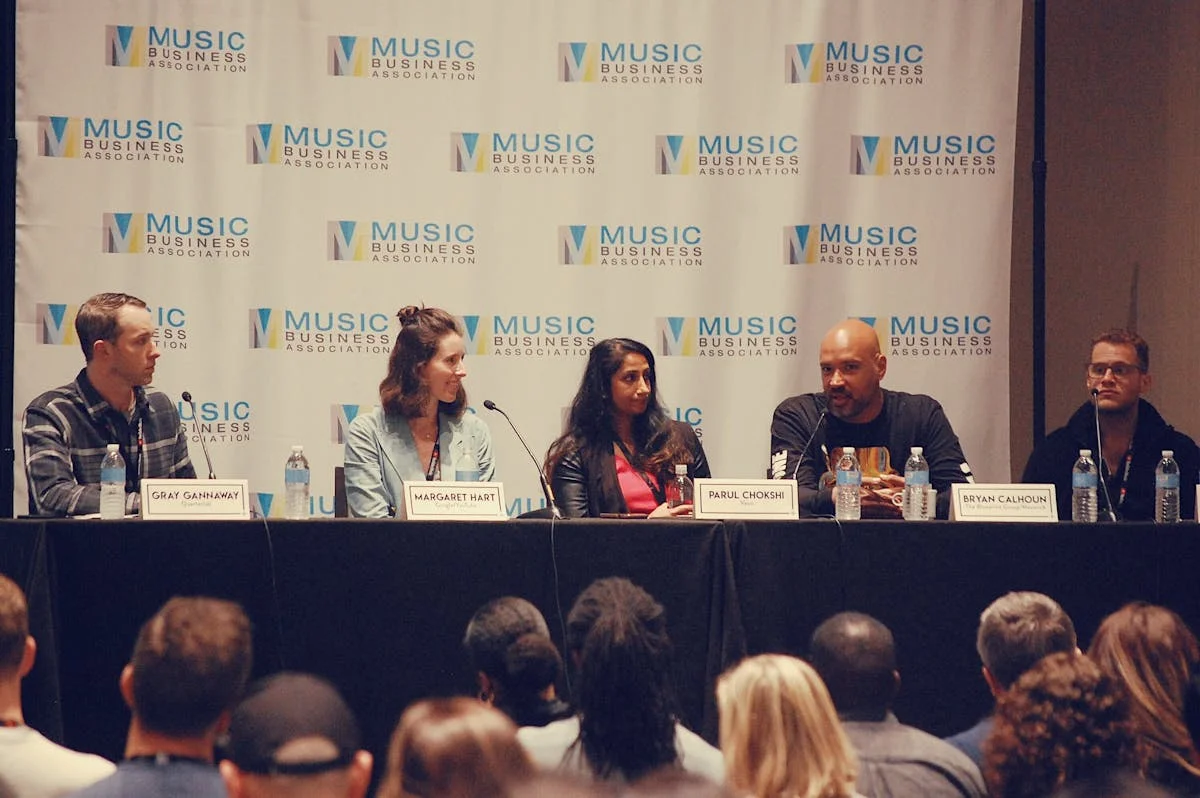
Credit: Music Biz
Music Biz
Organized by the Music Business Association, Music Biz conference is a place where players across all the different sectors of the music industry come together to discuss current challenges of the music industry and scout for partnership opportunities. It unites music professionals from content, commerce, and creative verticals under one banner, with a discourse to steer the industry in the right direction for the years to come.
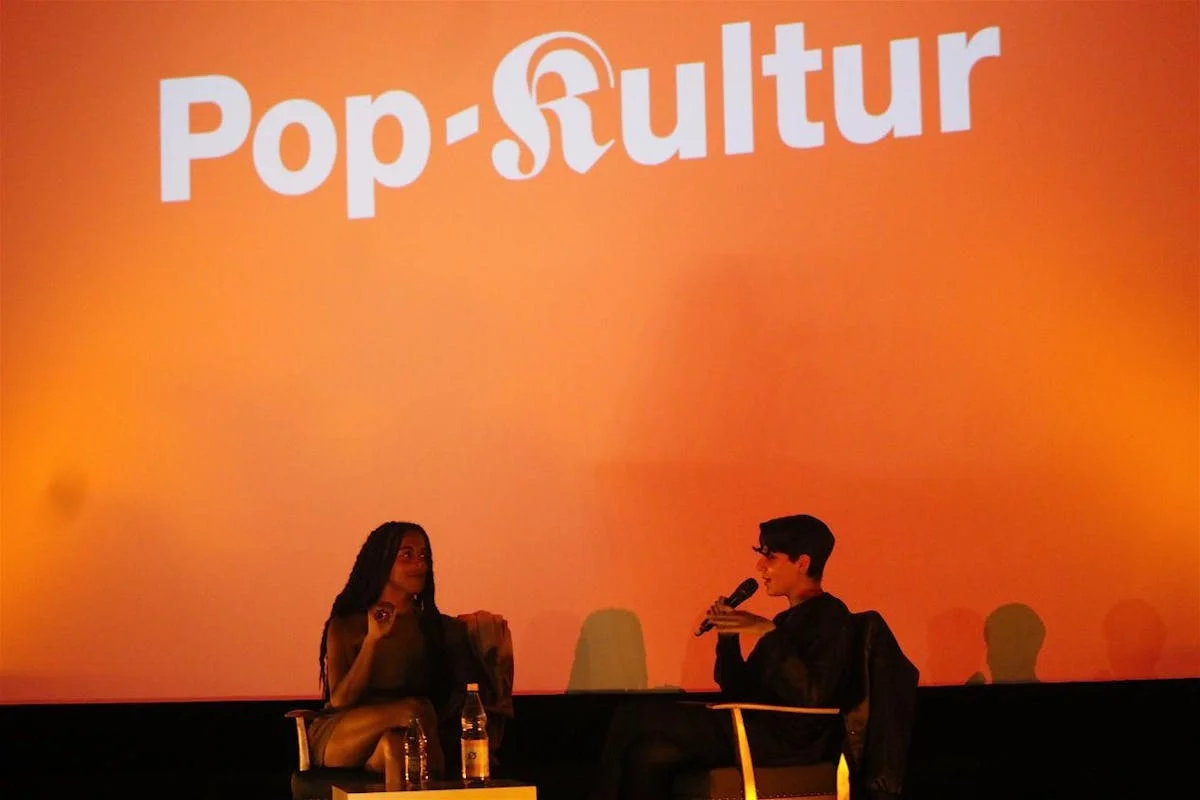
Credit: Pop-Kultur
Pop-Kultur
This conference is held at Kulturbrauerei, a rustic brewery complex in Berlin. It features a three-day program called “The Nachwuchs,” wherein artists and songwriters can get some direction via curated workshops and lectures from professionals in various fields of the music industry.
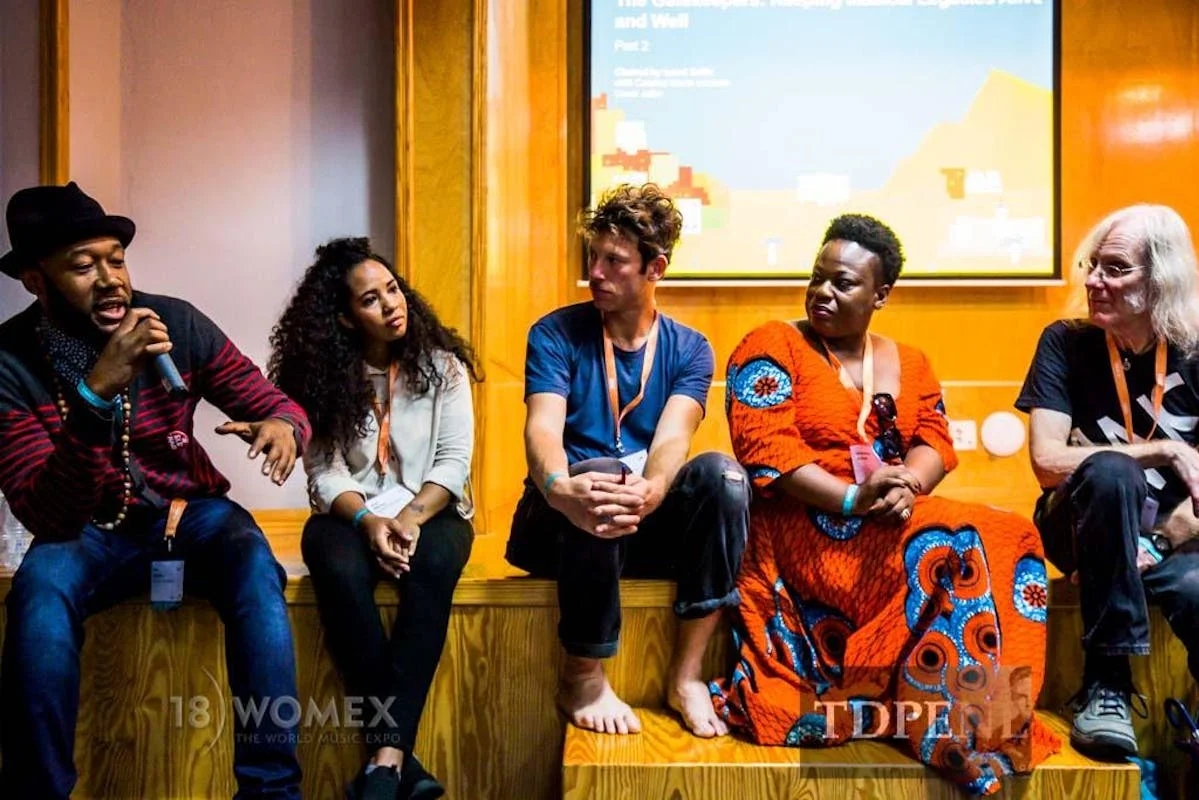
Credit: World Music Expo
World Music Expo
The World Music Expo is one of the world’s biggest conferences that gathers over 2,700 music industry professionals from 90 different countries. The expo is indicative of how globalized the current music industry is — a perfect example of a conversation that goes beyond borders.
Honorable mentions
The above conferences are the biggest can’t-miss events in the music industry, but here are a few others that deserve a visit if you’re around any of these great music cities:
- Wavelengths: Global Music Conference in New York City (NYC), New York
- Canadian Music Week in Toronto, Canada
- Winter Music Conference in Miami, FloridaNorth by Northeast (NXNE) in Toronto, Canada
- Indie Week in NYC, New York
- SyncSummit in NYC, New York (this conference caters more to high-level supervisors, labels, and managers)
- Digital Entertainment World in Long Beach, California (this conference focuses on digital content, with a focus on music and daily performances)
Music Showcases
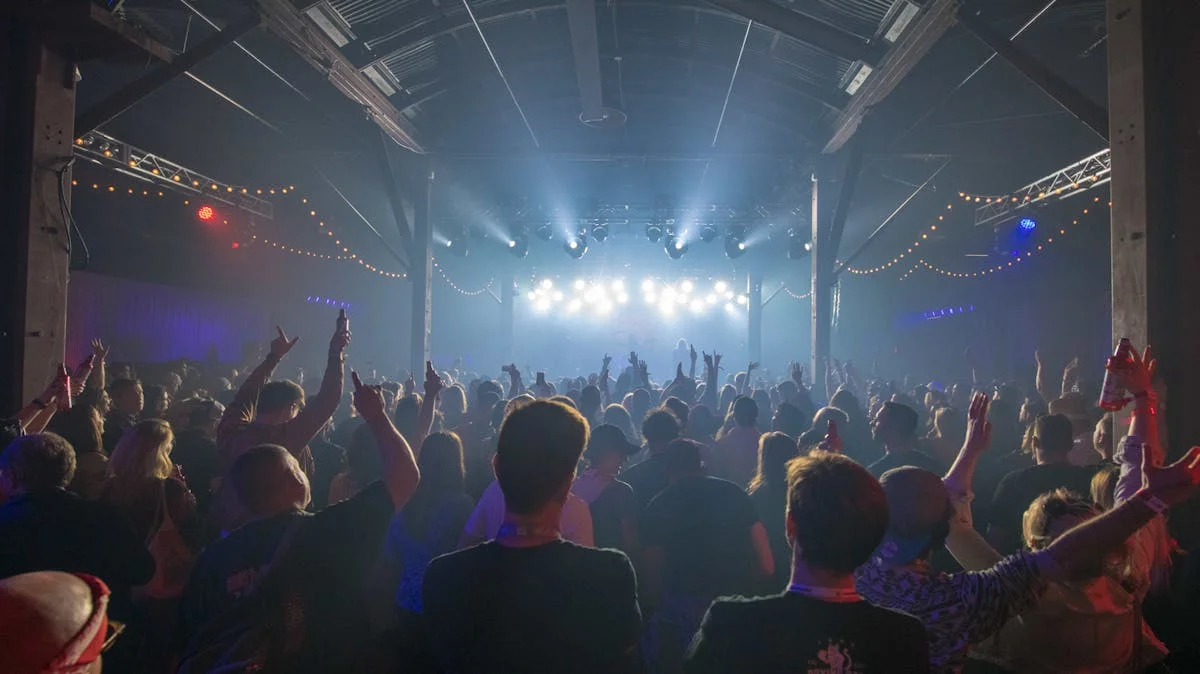
Credit: SXSW
SXSW
Every year, people head to Austin, Texas, to take part in the South by Southwest Festival and Conference (SXSW). The event features both established and up-and-coming individuals working in the fields of music, film, and interactive media from all over the world — making it a perfect place to forge connections among artists of all kinds.
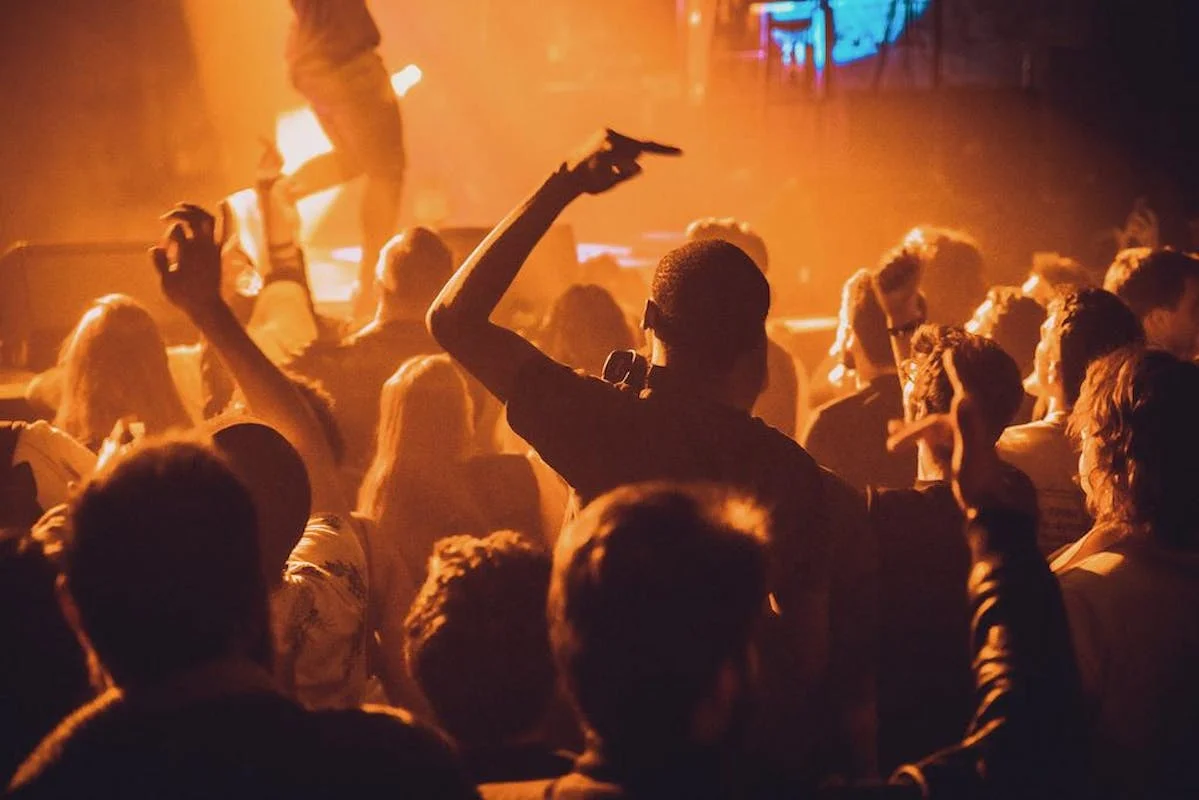
Credit: MaMa Festival
MaMa Festival and Convention
MaMa festival and convention started way back in 2009 and featured the best of what the French and international music industry has to offer. Compared to the others on this list, MaMa provides a more eclectic selection of concerts along with more niche workshops concerning the music industry.
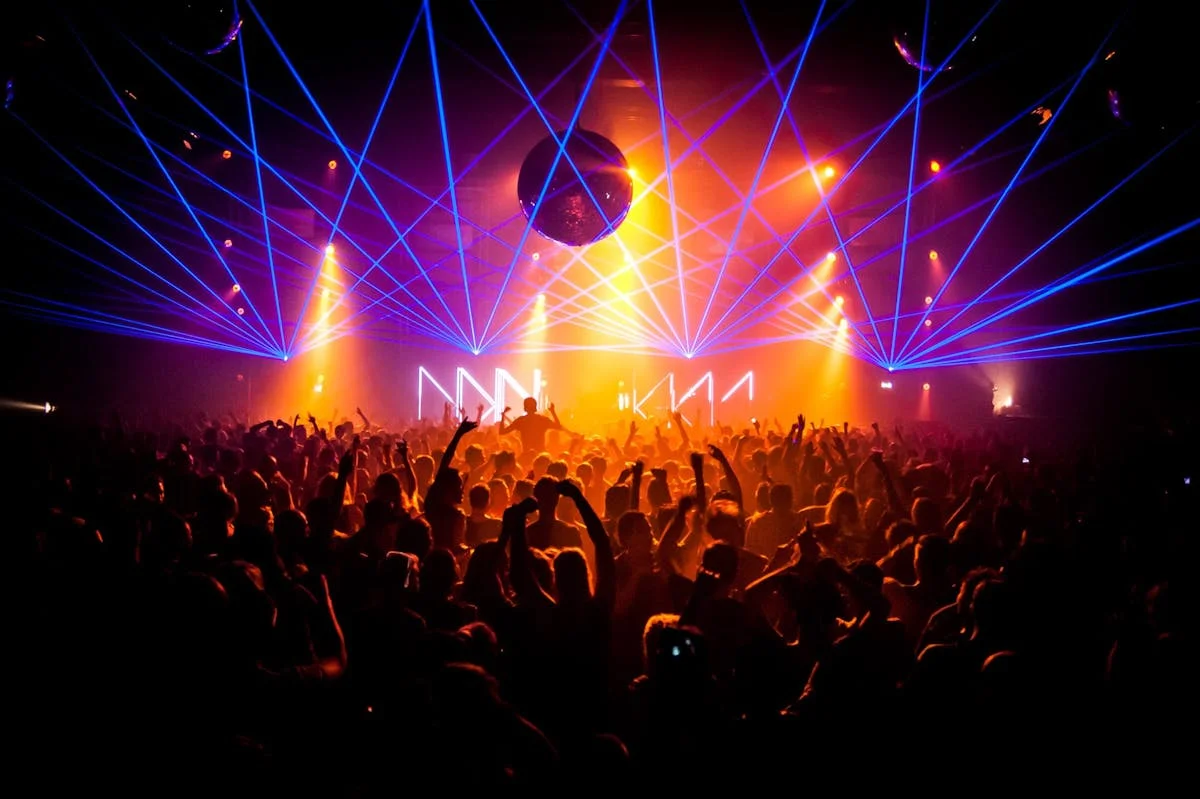
Credit: ADE
Amsterdam Dance Event
The Amsterdam Dance Event is the biggest convention gathering music professionals across the electronic music scene. Since its first instalment back in 1995, it's held each year in October in Amsterdam. The program features a wide range of panels, workshops and networking events, and stretches over 5 days, with almost 5,5k music pros attending the conference. On top of that, the event brings together over 2200 DJs annually to put together more than 400 shows for music professionals and electronic music enthusiasts alike.
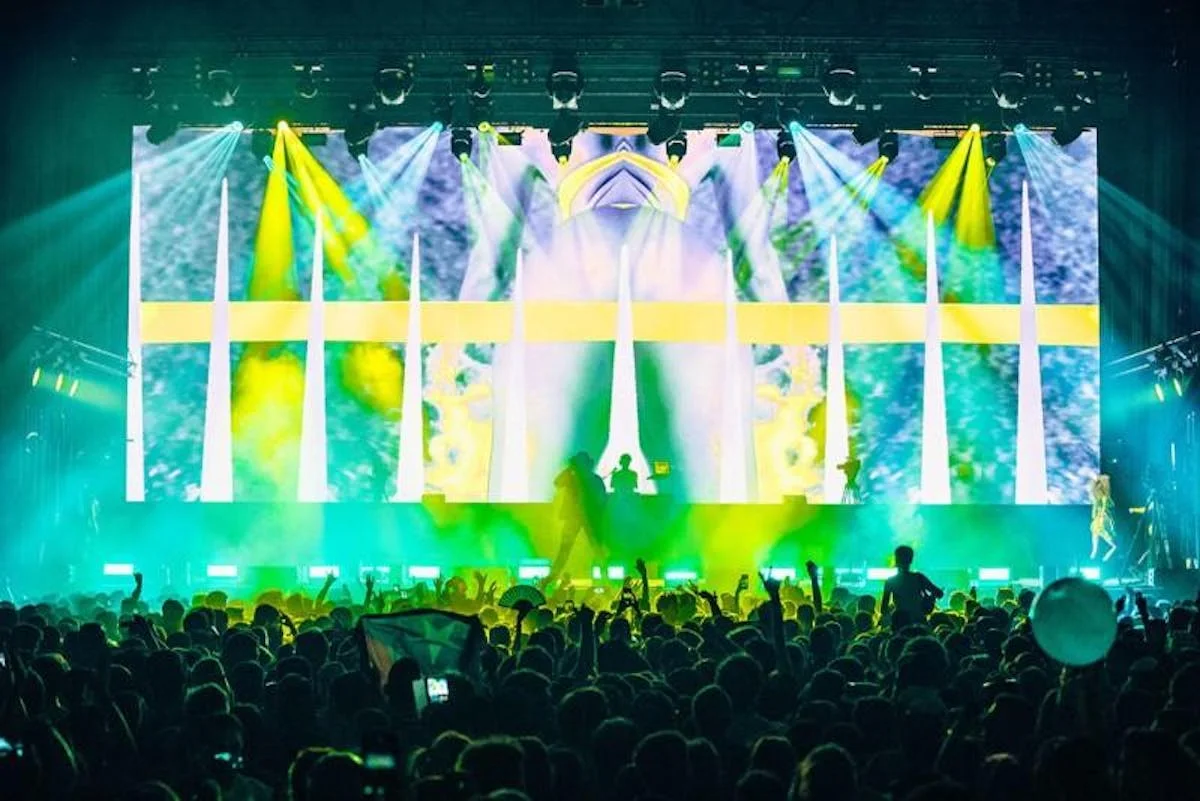
Credit: Sónar
Sónar International Festival of Advanced Music & Congress of Technology and Creativity
The Sónar International Festival has been around since 1994 and is one of the driving forces in culture and music ever since. Based in Barcelona, Sonar is divided into two distinct parts Sonar+D, and international congress for tech and creativity, and Sonar Showcase Festival. Spread across two locations, Sónar by Day at Fira Montjuïc, and Sónar by Night at the Fira Gran Via de L’Hospitalet, this showcase curates a musical experience like no other, matching avant-garde music acts with some of the more established performers across the dance and electronic music scenes.
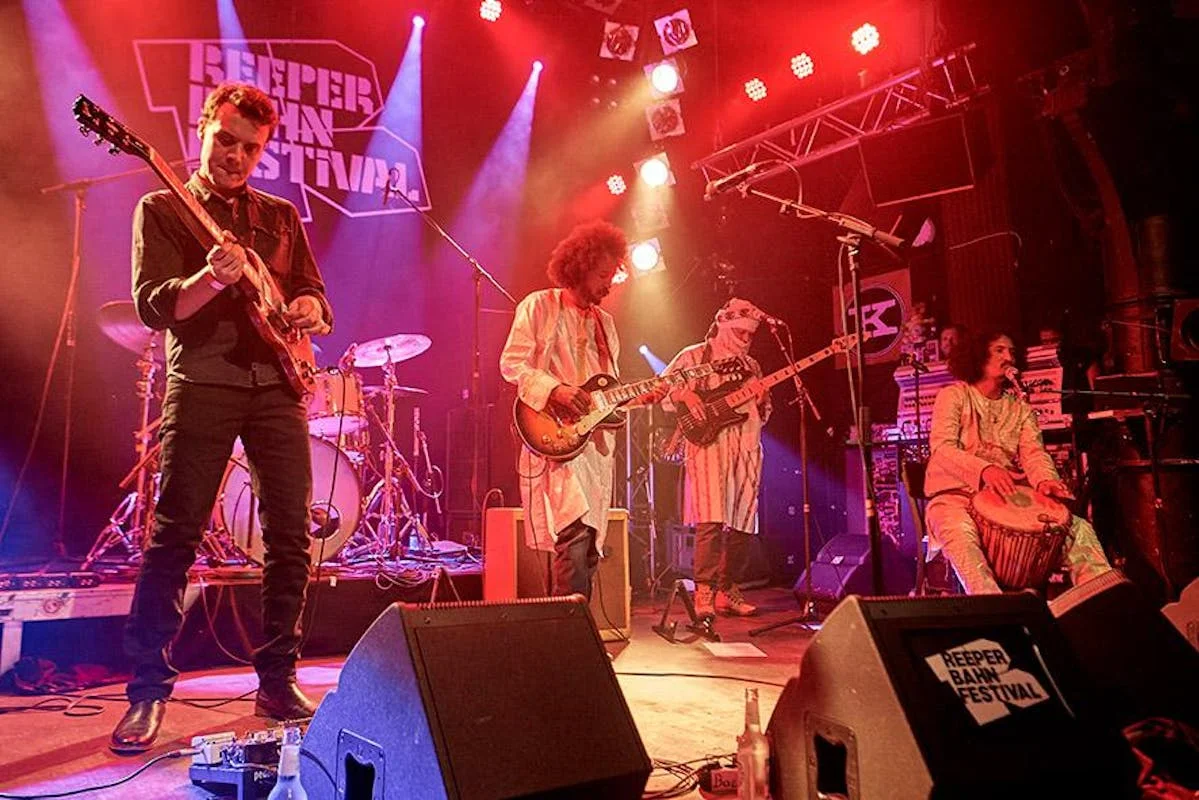
Credit: Reeperbahn Festival
Reeperbahn Festival
Since making its debut back in 2006, the Reeperbahn Festival has brought up-and-coming and established artists together in a four-day music showcase attended by thousands of fans, music journalists, and trade visitors. Held in Hamburg, Germany, Reeperbahn is split up into 900 individual events, which also includes a Discourse section that provides a venue for social and cultural debates as well as the music industry discussion.
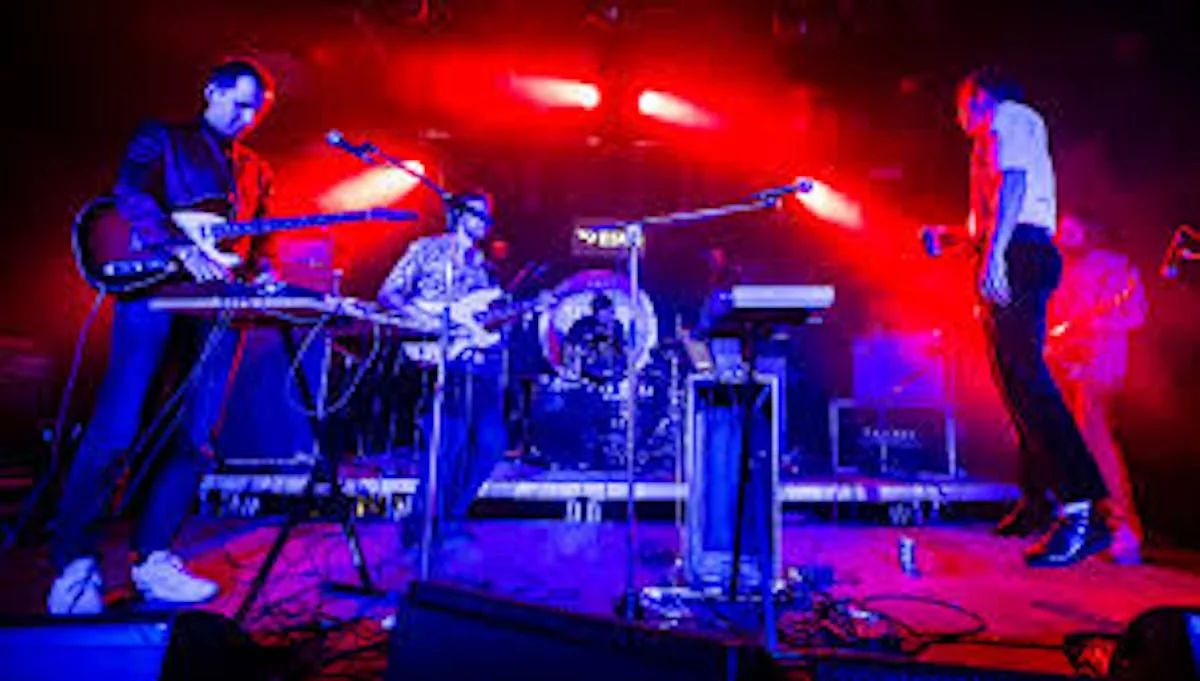
Credit: Eurosonic Noorderslag
Eurosonic Noorderslag
Eurosonic Noorderslag is a 4-day long conference held in Groningen, Netherlands since 1986. It is the first music biz event of the year, held early January. Similarly to Reeperbahn and MaMa, EN involves a lot of showcases happening in venues around the city, with the forth day reserved exclusively to the Dutch acts. The 2019 edition pulled together around 4000 music professionals and artists.
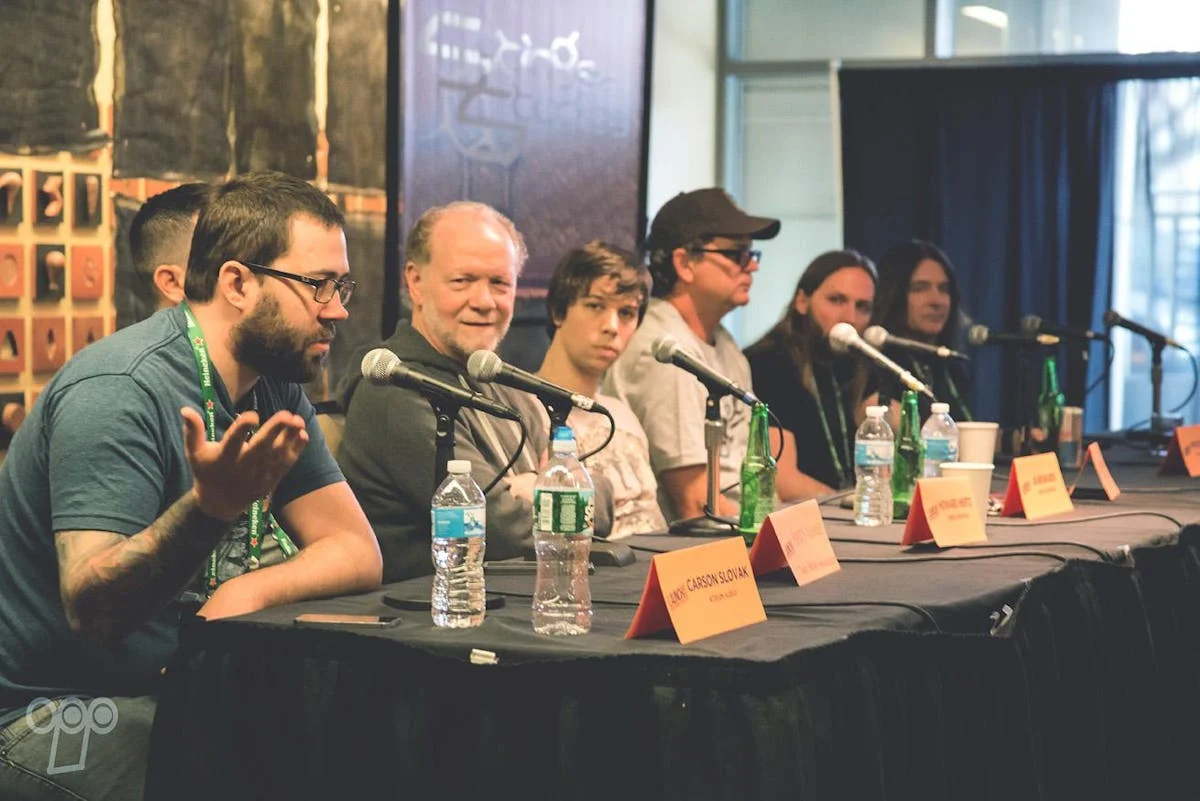
Credit: LAUNCH
LAUNCH Conference and Festival
Dubbed the SXSW of the East Coast, LAUNCH (which takes place in Pennsylvania) combines a music showcase and a conference to discuss the future of music and the current state of the industry over four days. The festival portion features music from all genres from up-and-coming artists to help them break into the mainstream.
Specially written for soundcharts.com
By June McBride

